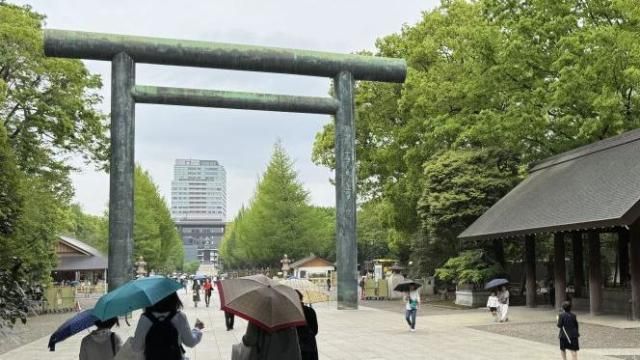According to local media sources, a Chinese man has been arrested on charges of spray painting the word "toilet" and peeing on a pillar at a contentious Japanese temple.
Police in Tokyo detained the man on Tuesday on charges of causing property damage and desecrating a place of worship.
The incident occurred in May, and footage of it had previously gone viral, inciting widespread indignation throughout Japan.
Over the years, the temple has caused tensions between South Korea and China, Japan's neighbors.
In May this year, the alleged perpetrator, who identified himself as Iron Head, posted a video on Chinese social media.
In it, he indicates that he is fed up with Japan's decision to release treated waste water, presumably a reference to water released from the Fukushima nuclear plant - a decision that outraged many in China.
The footage also showed him spray painting the word toilet in red on a stone pillar at the shrine in Tokyo. He also appeared to urinate on the same pillar.
Many in Japan were outraged by his actions, with one Tokyo businessman saying on social media that he was offering a reward of 10 million yen ($63,000; £49,000) to whoever caught him.
On Tuesday, Tokyo police said they had arrested the Chinese national - who lives in Japan. Arrest warrants have also been issued for two other Chinese nationals.
The shrine, which honours Japan's war dead but also convicted World War Two criminals, is seen by some of its neighbours as a symbol of the country's wartime aggression.
It is common for Japanese officials to visit the shrine during certain festivals and during the anniversary of Japan's surrender in World War Two.
In 2014, when then prime minister Shinzo Abe visited the shrine, China said the visit reflected "the erroneous attitude towards history adopted by Japan's incumbent cabinet".
South Korea similarly denounced the visit, saying it "romanticised Japanese colonialism and its war of aggression".








.svg)




